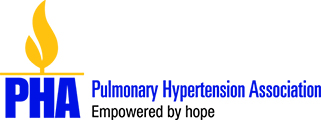Health Management Basics
Pulmonary hypertension patients take a lot of medications to help manage their disease, prevent the disease from worsening and to treat the side effects from PH drugs. Taking ownership of your health and medication regimen is the most important step in preventing drug mishaps.
Taking Charge of Your Health
Try to become as knowledgeable about your condition(s) and medications as your physicians and pharmacists are. In fact, with the unique features and potency of many PH meds, you should be the expert too.
- Learn how your medications work. Knowledge is power. Educate yourself about all your medications, their side effects and interactions. Doing so can prevent many medication mishaps. Read about the different types of PH therapy in the PH Treatments section.
- Organize your health information. It’s a good idea for people living with PH to keep information about all of their medications, current doses, allergies, medical/surgical history, physicians, and insurance with them at all times.
- Take advantage of technology. There are widely available devices and services that can remind you to take your medication and improve your compliance. To help you find one that meets your individual needs, the Caring Voice Coalition offers a comprehensive list of recommended medication reminder tools. Read page 8 of their newsletter for suggestions.
- Purchase a Medic Alert bracelet or necklace. These medical identifiers save lives. Don’t underestimate the value of fast assessments by healthcare personnel in the event of an emergency. A medical bracelet is an indicator to the practitioner to search deeper for the other information they need to treat you adequately. Minutes make a difference.
- Phone a friend. Before and after your doctor visits, speak with other patients to find out how they juggle their day-to-day medication management. Many patients have developed unique strategies for their therapies, and you may be able to adapt these to your own scenario. Visit our online community for suggestions!
- Be confident. A pulmonary hypertension diagnosis is a curve-ball regardless of age, medical history or education. Take a deep breath, ask for help when you need it and, above all, believe in yourself. No one knows your body better than you.
Working with Your Medical Team
PH is a complicated disease, and open and honest communication between you and your medical team is key. Learning to relay updates, questions and concerns to your doctors and nurses is an essential step towards becoming your own health advocate.
- Talk to your PH team. A lot. Talk with your PH physician and nurse about your medication options and what they mean for you in terms of day-to-day management. Your doctor will do his or her best to develop a regimen that offers the best treatment while allowing you to manage your health comfortably and confidently.
- Share and share alike. Many PH patients have several physicians. Be vigilant about sharing your information with everyone. This includes all of your physicians and specialists, nurses, pharmacists, local EMS services and family members. Remember that doctors, hospitals and pharmacies generally do not share information. DON’T assume your PH physician knows, for instance, that your family doctor just added a new sinus medicine to your regimen. Notify him or her immediately and ask questions before you fill the prescription or take the first dose.
- Ask. Then ask again. There are no stupid questions. Medical professionals are educated and knowledgeable about medications but they are often busy and can become distracted. Don’t be afraid to ask questions several times until you are comfortable that they’ve been answered adequately.
- Establish a “ringleader.” For most PH patients, the ringleader is your PH physician. PH is rare and different from other diseases in many ways, especially when it comes to medications. Your ringleader is the physician who possesses the greatest overall knowledge of your condition(s) and treatments.
Complying with Your Medication Regimen
PH and its management can seem insurmountable at times, but remember that PH medications are designed to make you feel and fare better. Here are a few tips to help you take your medication and oxygen on time and as ordered:
- Set a beeping alarm to go off when it’s time to take your medication. Use your watch or cell phone so you have it with you at all times.
- Arrange in advance for a private place to take your medication if you work during the day or you plan to be out of the house for a stretch of time.
- Keep a medication checklist or diary to record each dose as you take it.
- Ask a friend or family member to check in with you on a daily basis with friendly reminders. Remember, you’re not in this alone.
- Plan ahead for traveling and refills.
- Remember that supplementary oxygen is a drug too, and should be used as your doctor prescribed. As tempting as it may be to discontinue oxygen use in public after a few encounters with nosy strangers and children, oxygen therapy has positive benefits in improving health and symptoms. Carry PHA’s wallet cards with you to hand to people who stare at your oxygen tank and turn these moments into awareness-raising opportunities.
- If you’re still struggling to follow your medication regimen as prescribed, ask your PH doctor or nurse for help. Be honest with your PH team about your medication adherence so they can work with you to find a solution.
Medical review by Traci Stewart, RN, MSN, CHFN, Cardiomyopathy Treatment Program, University of Iowa.

